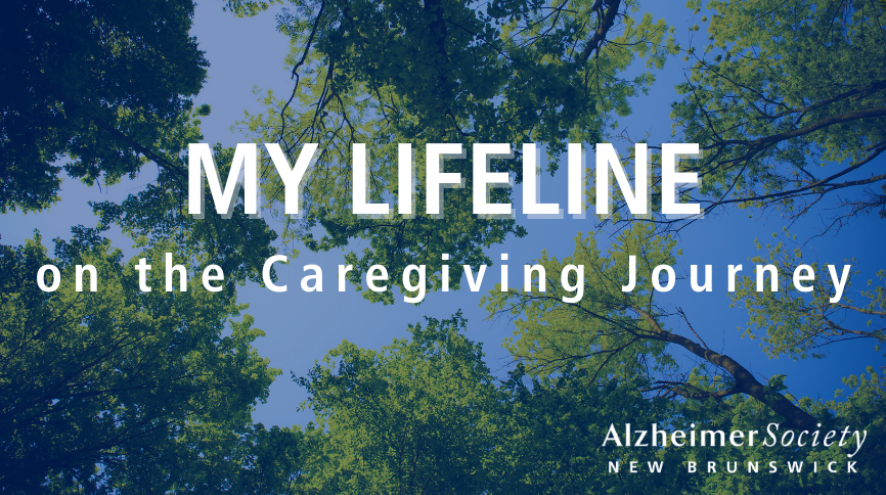My Lifeline on the Caregiving Journey
The following article was written by a gentleman who cares for his wife who lives with dementia. In his story, he talks about the challenges they experienced on the dementia journey as well as the tools and resources they accessed to help them find their way forward.

I noticed that my wife was sometimes forgetful and confused, but then it got a lot worse. I noticed she could not understand other people’s emotions, especially mine. My wife had changed and I suddenly realized I was grieving for the soulmate who was, and the closeness we had. I was overwhelmed and very lonely. I responded by confiding in a First Link Coordinator at the Alzheimer Society, friends, relatives, and doctor, and my journey started improving.
Acceptance and Commitment Therapy (ACT) was how I moved forward, though I didn’t know that’s what it was called at first. It helped me to accept my losses and figure out how to deal with my current realities. Before ACT, I used to plan ahead for weeks or months. It was a disaster with my wife the way she had changed. Now, I plan one day at a time, and ACT helps me do that.
ACT began for me as questions I asked myself one by one that helped me figure out my reality and how I needed to respond to it:
- What or who am a grateful for?
- What went well yesterday?
- Are there any symptom changes I need to think through?
- What didn’t go well yesterday?
- How can I change to make today better?
- What do I need to keep doing?
- What are the values we have always believed in?
- Do I need to get help from someone, to talk through what is going on?
- Is there something nice we can do together, something we would both like to do?
At first my mind wandered haphazardly into each one of these thoughts, but I realized that things were getting better. I needed to repeat to keep the improvements going. So, I made a mental list of the questions above, and it became a daily thought routine. Every day. And slowly I felt better, and our life together was better. We still had upsets, and I got a lot of things wrong, but our life was better.
After a few weeks, I realized one morning that I had forgotten to do my thought routine. So, I stopped and went through the list. And then I realized something else: I hadn’t forgotten at all! I was going through all the items as the day progressed, whenever there was something new to work through. It had become the way I think.
ACT helps me as a caregiver to adapt to changing circumstances, symptoms, and feelings—both mine and my wife’s. It has become the way I think about anything that I don’t know how to handle. Sometimes I blunder back into the old ways of rushing too much, and future thinking, but it doesn’t last long because they don’t work. Our lives keep changing, and ACT helps me to figure out how to adapt to those changes.
ACT isn’t everything that I do. It is so easy to forget my own needs when I am focused on my wife’s needs. I have done that, and hurt myself. So I learned to ask:
- Am I blaming myself for something that wasn't my fault?
- Did I get enough exercise yesterday?
- Am I eating sensibly?
- Do I need a break from caregiving?
- Should I do something I like, just for me?
ACT helped me to move forward when I was overwhelmed, but it takes work and it’s not magic. It doesn’t stop the disease progression or the ambiguous grief, but it does enable me to figure out what I need to try next to move forward. And I am so grateful for the folks who helped me get there. My wife and I found our way back to the positive parts of being a couple because of it. I know there will be challenges, I know there will be grief, but I also know there is still trust, and love, and caring.
If you are caring for someone living with dementia and need a helping hand or a listening ear, know that the Alzheimer Society of New Brunswick is just a phone call or email away. Call us at 1-800-664-8411 or email us at info@alzheimernb.ca to learn about how we can help, including accessing our free counselling program for caregivers.
More information and resources
Looking after yourself. Web page resource on care for the caregiver.
